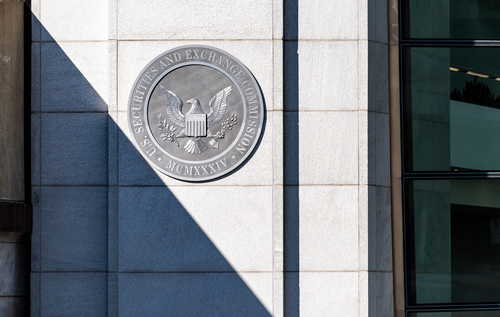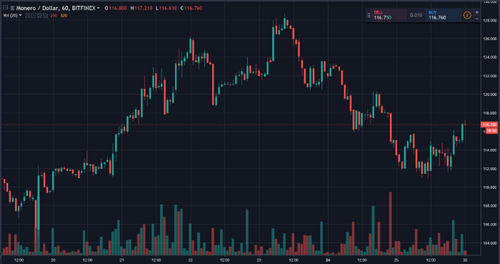In an order dated Wednesday, BCOT agreed to refund investors who notify the firm they want their money back. It must make efforts to inform token buyers individually and on its website of the potential claim.
Internet startup Blockchain of Things Inc. (BCOT) agreed to pay $250,000 to settle with the U.S. Securities and Exchange Commission for launching an initial coin offering without registering with the regulator.
The federal securities regulator has long held that ICOs are a form of security and thus must be registered.
According to the SEC, the firm raised nearly $13 million from the ICO in December 2017 even after the regulator warned the firm its token sales could be considered securities offerings, citing its investigation of another company, DAO, in 2017.
BCOT sold its digital tokens to U.S. investors and engaged four “resellers” to serve as the exclusive sellers of the tokens in foreign countries where it can resell the tokens to U.S. investors, according to the SEC’s findings.
In its pre-sale white paper, BOT said part of the funding from the ICO would develop a blockchain-based platform to allow third-party developers to build applications for message transmission and logging, digital asset generation, and digital asset transfer, the firm said in the statement.
Under the settlement, BCOT will register its tokens as securities and file periodic reports with the SEC.

A slew of crypto startups launched ICOs to raise money for their tokens amid the bitcoin market boom at the end of 2017, running afoul of the SEC, which considers token sales securities that should be subject to federal securities laws and information disclosure.
Earlier in December, the SEC charged crypto startup Shopin and its CEO Eran Eyal with fraud involving a $42 million unregistered ICO.
In September, the SEC ordered EOS maker Block.One to pay $24 million in penalties for not registering with the commission. The company raised over $4 billion via an ICO in May 2018.
Blockchain Now Officially Part of China’s Technology Strategy
An influential government authority responsible for planning China’s economy has said blockchain will form an integral part of the country’s data and technology infrastructure.
The National Development and Reform Commission (NDRC) told reporters Monday blockchain will join other emerging technologies such as cloud computing, artificial intelligence (AI) and the internet of things (IoT) in underpinning the systems China uses to manage the flow of information in the coming years.
Originally the State Planning Commission, the NDRC is a cabinet-level department that draws up policies and strategies for the direction of the Chinese economy. It has a wide brief that covers everything from investments into public transport to running anti-monopoly probes as well as overseeing corporate debt issuance.
On how new technologies, including blockchain, would be integrated, high-tech director Wu Hao said the NDRC would «work with relevant departments to study and issue relevant guidance to promote the development of new infrastructure and revise and improve the access rules that are conducive to the sustainable and healthy development of emerging industries.»
What that means for blockchain’s future in China is hard to know, because the NDRC has a complicated relationship with the broader industry.
An NDRC subsidiary has been working on a new Blockchain Service Network (BSN) that would provide companies with access to the tools they need to develop blockchain-based applications. Having already launched for domestic commercial use, it will open for global companies later this week.
However, last April the NDRC included the country’s substantial bitcoin mining sector on a draft proposal for the industries it wanted «eliminated» from China. The body quietly removed mining from its list of undesirable industries weeks after Xi made his thoughts on the great potential of blockchain abundantly clear in October.
In the past, the NDRC has issued guidance and supportive policies for industries considered vital for the government’s economic strategy. It signed an agreement with the China Development Bank in late 2018, to provide 100 billion yuan ($14.1 billion) in financial support to companies working in emerging tech, such as AI and IoT.
Whether the NDRC is planning on providing a similar level of support to companies working with blockchain is not yet known. But as support for the technology now goes all the way to the top, blockchain firms may well soon find themselves treated more favorably, as they are in nations such as South Korea.
